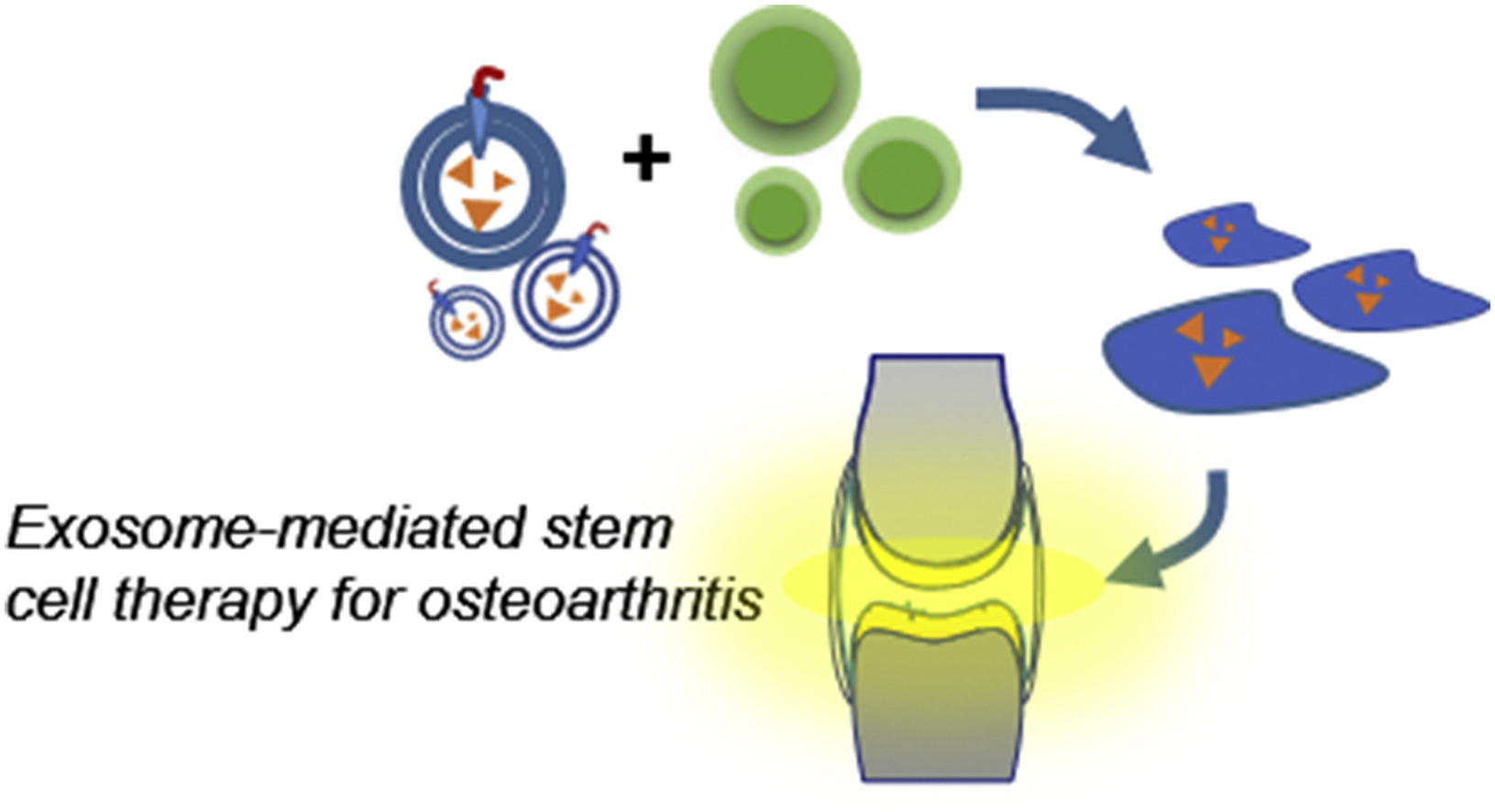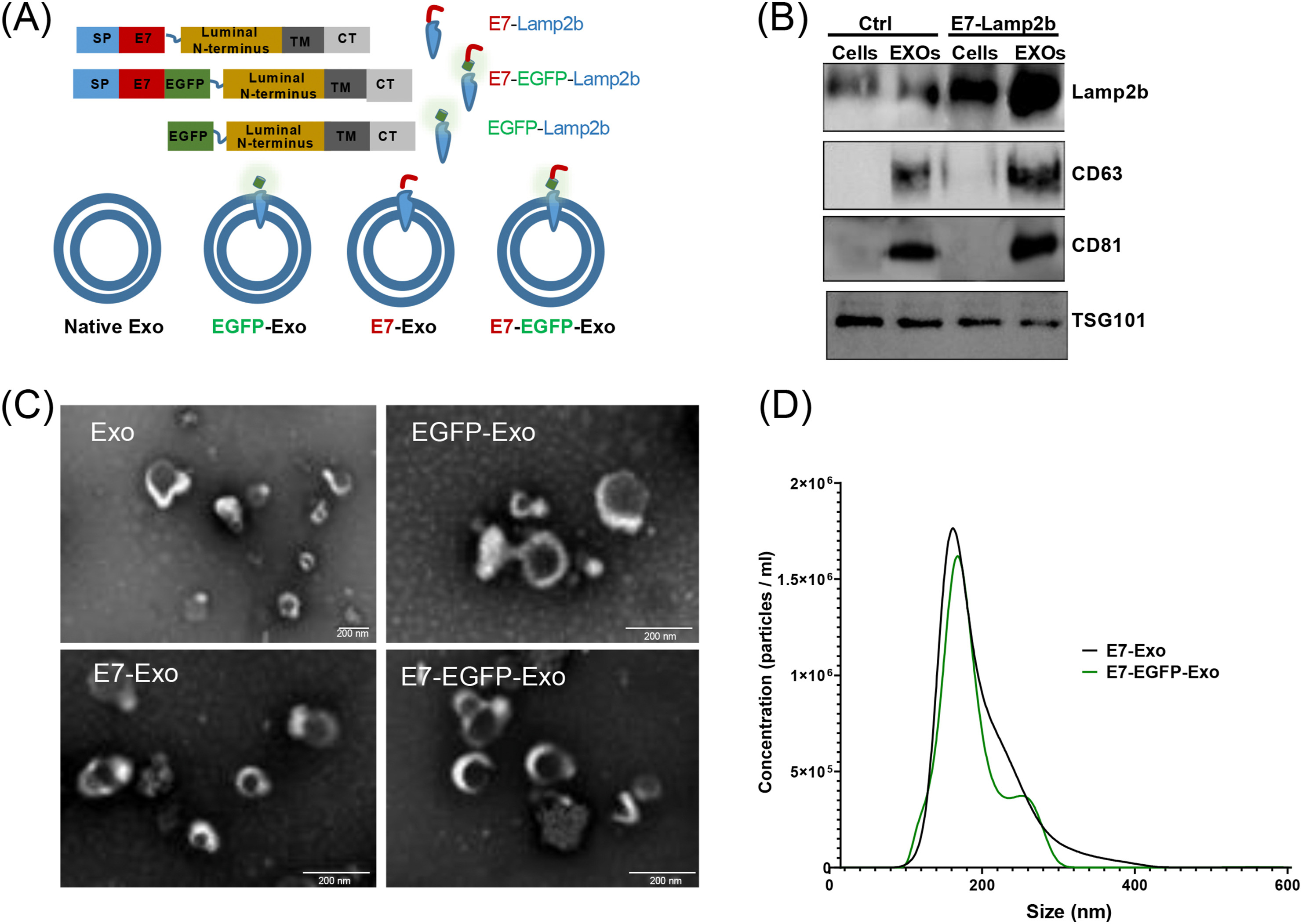SF-MSCs-Targeted Exosome Modification Service
- Robust cell engineering platform supporting multiple expression systems for stable fusion protein expression.
- Comprehensive exosome purification and modification toolkit, including ultracentrifugation, SEC, and magnetic bead-based methods.
- High-standard validation system for exosomes, including TEM, NTA, and Exo-FACS.
- Experienced technical team providing tailored experimental design and detailed data analysis services.
SF-MSCs-Targeted Exosome Modification Service is dedicated to engineering exosomes capable of precisely recognizing synovial fluid-derived mesenchymal stem cells (SF-MSCs). By displaying specific binding peptides (such as the E7 peptide) on the exosome surface, this service enhances the targeting efficiency of exosomes in applications such as tissue engineering, inflammation modulation, and chondrogenic induction. It offers optimized solutions for regenerative medicine and joint disease therapy research.
SF-MSCs are a type of mesenchymal stem cell derived from synovial fluid, known for their high expansion potential, low immunogenicity, and strong cartilage regeneration capacity, making them a valuable cell source for treating musculoskeletal conditions such as osteoarthritis and cartilage defects. With the growing use of exosomes in intercellular communication and drug delivery, technologies for targeted modification of exosomes toward SF-MSCs have emerged as powerful new tools for precisely regulating SF-MSC behavior.

Xu X. et al. Biomaterials. 2021.
Exosomes are nanoscale vesicles secreted by cells that carry various bioactive molecules such as proteins, RNAs, and lipids, serving as natural vehicles for signal transmission and molecular delivery. Through genetic engineering, specific targeting peptides (e.g., the SF-MSCs-affinity peptide E7) can be fused to exosomal membrane proteins, endowing exosomes with the ability to specifically recognize and enrich synovial fluid-derived mesenchymal stem cells (SF-MSCs). Based on the expression of fusion proteins in engineered cells, the secreted exosomes naturally display the targeting peptide, enabling them to bind selectively to surface markers on SF-MSCs. These engineered exosomes can also be further utilized as delivery vehicles to encapsulate RNAs, proteins, or small molecule drugs, thereby modulating the fate and function of SF-MSCs.
Using genetic engineering and other biotechnology approaches, MtoZ Biolabs offers the SF-MSCs-Targeted Exosome Modification Service enabling specific targeting of SF-MSCs through exosome modification. This service supports research into SF-MSC functional regulation, targeted delivery, and therapeutic applications.
Analysis Workflow
Our SF-MSCs-Targeted Exosome Modification Service follows a high-standard technical workflow:
1. Targeting Peptide Design and Selection
Clients may customize peptide sequences (e.g., E7 peptide), or select from our pre-validated peptide library.
2. Fusion Protein Construction and Cell Engineering
Construction of membrane protein–targeting peptide fusion vectors;
Transfection into appropriate host cells (e.g., HEK293T or MSC) to establish stable expression cell lines.
3. Exosome Isolation and Purification
High-purity exosomes are extracted using ultracentrifugation, size-exclusion chromatography (SEC), or immunoaffinity capture.
Optional RNA or drug loading services are available.
4. Targeting Validation and Functional Evaluation
Exosome characterization (TEM, NTA, Western blot).
Target-binding ability assessment (flow cytometry, cellular uptake assays).
Optional fluorescent labeling (e.g., DiR, GFP) for in vivo tracking.
5. Delivery and Customized Analysis Report
Complete experimental documentation, quality control data, and application recommendations are provided.
Applications
Engineered exosomes targeting SF-MSCs can be applied in the following research and therapeutic areas:
SF-MSC Regulation Studies
Targeted delivery of miRNA or siRNA to SF-MSCs for investigating differentiation regulatory mechanisms.
Joint Disease Therapy Development
Develop exosome-based drug carriers to enhance SF-MSC migration, immunomodulation, and chondrogenic potential.
Regenerative Medicine
Combine with biomaterials for applications such as cartilage repair and reconstruction of the synovial microenvironment in joint tissue engineering.
In Vivo and In Vitro Imaging & Tracking
Real-time imaging of SF-MSC targeting through labeled exosomes.
Cell-Cell Communication Mechanism Research
Mimic endogenous exosome function to study intercellular signaling between SF-MSCs and immune or synovial cells.
Service Advantages
FAQ
Q. How are exosomes engineered to target SF-MSCs? Is the targeting peptide reliable?
Engineered exosomes are typically endowed with targeting capability by fusing specific peptides (e.g., E7 peptide) to exosomal membrane proteins such as Lamp2b or CD63. The E7 peptide is a screened and validated synovial fluid MSC-affinity peptide that recognizes surface markers on SF-MSCs, enhancing their binding and uptake efficiency. This strategy has been successfully applied in multiple stem cell and regenerative medicine studies, demonstrating reliable targeting performance while maintaining the natural biocompatibility and low immunogenicity of exosomes.
Q. Can functional molecules (e.g., RNA, proteins, small-molecule drugs) be loaded into exosomes for effective delivery?
Yes. Exosomes can efficiently encapsulate a wide range of bioactive molecules, including miRNAs, siRNAs, mRNAs, proteins, and chemotherapeutic drugs. High-efficiency loading can be achieved through techniques such as electroporation, sonication, or endogenous expression systems. Once loaded, the engineered exosomes can utilize their surface targeting ligands to deliver payloads specifically to SF-MSCs, where the cargo is released intracellularly to precisely regulate cellular behavior such as differentiation, migration, and immunomodulation.
Case Study
In this study, exosomes were engineered by fusing the E7 peptide to their surface, enabling precise targeting of SF-MSCs. Kartogenin (KGN), a small-molecule drug known to promote chondrogenesis, was encapsulated into the engineered exosomes to induce cartilaginous differentiation of SF-MSCs. The results showed that this exosome-mediated KGN delivery system significantly enhanced chondrogenic differentiation of SF-MSCs and demonstrated promising cartilage repair effects in a rat osteoarthritis model.

Xu X. et al. Biomaterials. 2021.
How to order?







